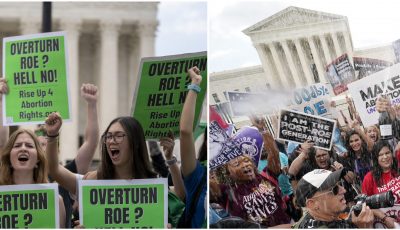‘Salary hike negation bill unconstitutional’

The House Judiciary and Governmental Operations Committee deliberates three bills of Rep. Edwin K. Propst (Ind-Saipan), right, at the House Speaker’s conference room. (Erwin Encinares)
According to members of the House Committee on Judiciary and Governmental Operations, a bill seeking to negate the salary increases of elected leaders may be deemed unconstitutional.
Rep. Edwin K. Propst’s (Ind-Saipan) House Bill 20-39, which seeks to remove salary increases of elected officials as stated in Public Law 19-83, may possibly be deemed as unconstitutional, according to the House legal counsel in yesterday’s committee meeting.
According to House legal counsel John Cool, who cited Article 2, Sec. 10 and Article 3, Sec. 5 of the CNMI Constitution, the salaries of elected members of the Legislative branch and the Executive branch may not be changed within four years.
The counsel added that according to both provisions of the CNMI Constitution, the salary change must also be accompanied by a recommendation from the advisory commission suggesting for a salary change, which H.B. 20-39 lacked.
For the mayoral salaries, reversion was legal.
Recognizing that a certified question petition has been filed to the Supreme Court during the third quarter of 2017, the committee ultimately decided to defer action on the bill until a ruling on the constitutionality of the salary increases of P.L. 19-83.
“…The intent of the bill is to revert back the salary that was already enacted into law during the 19th Legislature, which the constitution does not allow because you have to wait another four years before you could make another salary adjustment,” said JGO Committee chair Rep. Ivan A. Blanco (R-Saipan), adding that his committee would wait for the ruling of the Supreme Court on the certified question.
Propst, on the other hand, believes that H.B. 20-39 was not a change in salary, but was simply “reverting back” the changes in their salaries. He also pointed out that the advisory commission back then failed to recommend a salary increase within the given timeframe of 60 days and should therefore be deemed as void.
“We don’t have to wait for the Attorney General to operate. It is within our capacity and our rights to change and correct the wrongdoing that has been done,” he said, further pointing out that there was a pecuniary interest during the deliberations of P.L. 19-83 because reelected officials voted on the bill after the elections of 2016.
According to P.L. 19-83, the governor and lieutenant governor would be compensated with a salary of $120,000 and $100,000 per annum, respectively. The fiscal year 2018 budget bill indicates an annual increase of $30,700 for both House and Senate members, while mayors of each senatorial district get an annual increase of $31,800, effectively bumping legislators’ budgets to $70,000 per annum and $75,000 per annum for mayors.



























